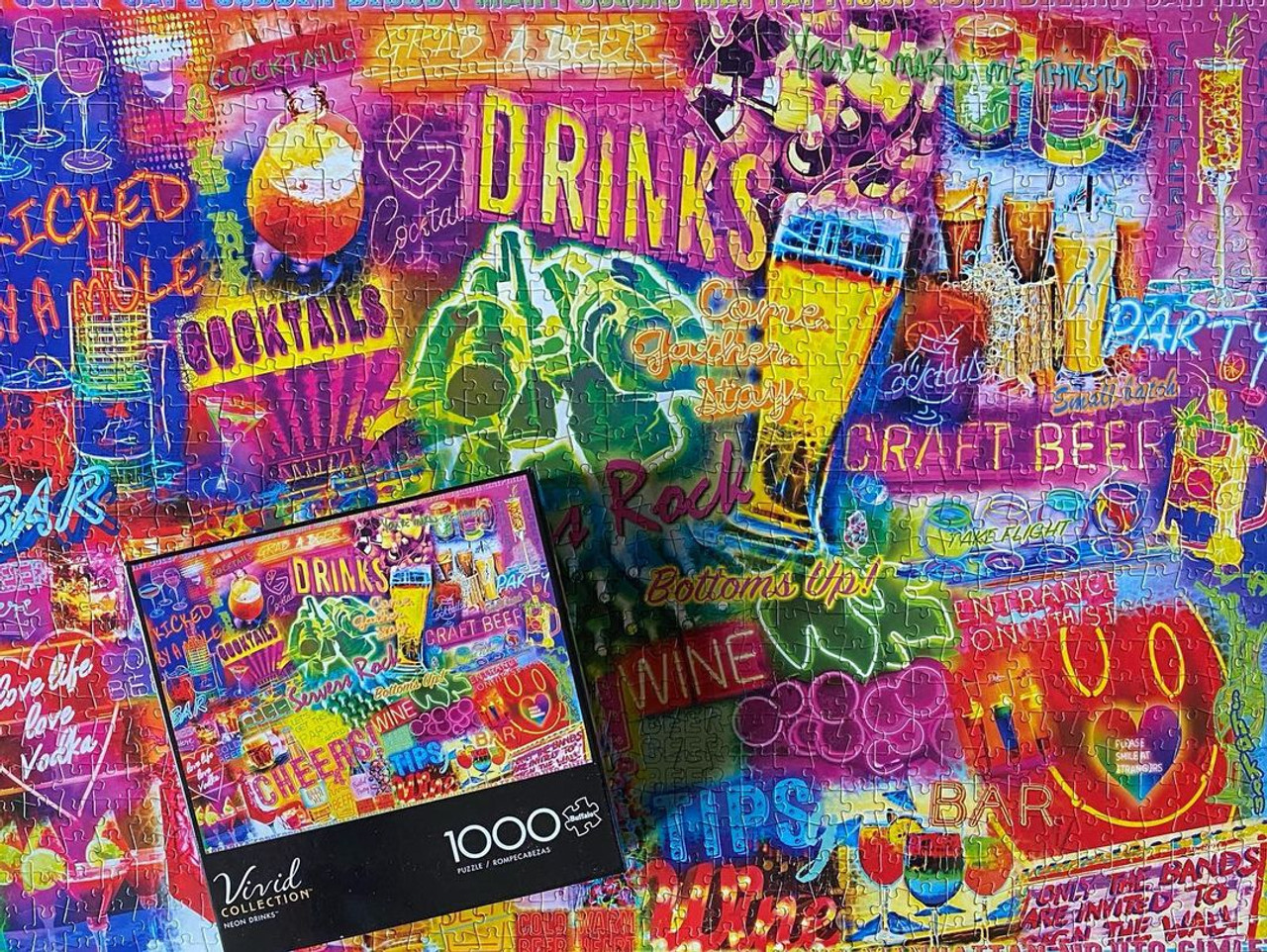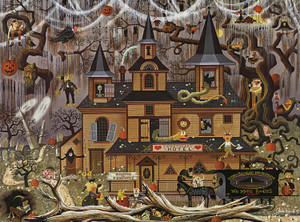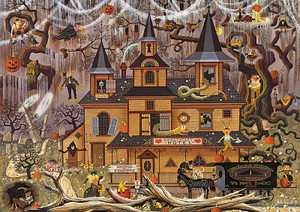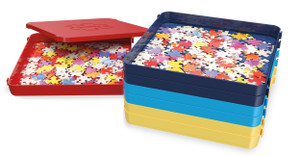Posted by Buffalo Games on Sep 28th 2022
Do Jigsaw Puzzles Help with ADHD?
Before diving into this potentially emotional minefield, you first need to know that we are not medical experts.
We also know that there are deep and well-established opinions based on a lot of great data to support a wide range of theories on what ADHD is, what causes it, and how to best treat it.
All we aim to do in this blog is to explain what ADHD is, show you how jigsaw puzzles could help, and encourage you to engage that help. After all, puzzling certainly isn’t going to hurt.
What Is ADHD?
ADHD stands for Attention Deficit Hyperactivity Disorder, and according to the CDC, it can present itself in three ways:
- Predominantly hyperactive and/or impulsive
- Predominantly inattentive
- Combined presentation
If you’re the first type, you’ll often fidget or feel edgy or irritable if you can’t get up and move. You’ll also struggle with impulse control or anxious feelings that cause you to interrupt people or even grab things from them.
If you’re the second type, you’ll find it difficult to focus or pay attention to people or tasks. You might be easily distracted and even forget the details of your daily routine.
If you’re the third type, you suffer from both difficulties together.
If you’re reading between the lines, you’re already wondering how jigsaw puzzles fit in. Don’t worry; we’ll get there. We just have to fully explain the nature of the challenge before we can lay out how jigsaw puzzles can help.
Symptoms of ADHD
The list can be long, but the essence of ADHD symptoms is as follows:
- You may often make careless mistakes or take unnecessary risks
- You could have a hard time resisting temptation
- You might not get along very well with others
- You might talk excessively
- You could forget or lose things often
It’s important to know that just because you see yourself or a loved one on this list does not mean anybody has ADHD. That’s a diagnosis for a qualified professional to make.
Causes of ADHD
ADHD is primarily triggered by these things:
- TBI (traumatic brain injury) such as concussion, brain bleed, etc.
- Toxic exposure during pregnancy (in vivo)
- Alcohol, tobacco, or drug use in vivo
- Premature birth or low birth weight
The treatment of ADHD can be both simple and effective — often as simple as solving jigsaw puzzles.
What Does It All Mean?
As we mentioned, you probably see a bit of yourself or someone you love in the above statements. It’s a fact that we can all struggle to focus sometimes or that we feel especially weak-willed around perfectly innocent and generously portioned bowls of ice cream.
Or is that just us?
We do apologize. The point is that jigsaw puzzles for adults can play a major role in bringing a little more focus and a little less chaos into your world.
How Jigsaw Puzzles Can Help
One of the biggest victories anyone struggling with ADHD can score is to make a connection not only in their mind but to also make that connection real. Here’s how jigsaw puzzles help:
- As you sort and look for matching pieces, you’re engaging both sides of the brain
- The left brain thinks rationally
- The right brain thinks creatively and imaginatively
- This union of reason with the abstract enables clarity
- That cognitive clarity produces dopamine, the body’s natural reward chemical
- When you match one piece to another, what was in the mind is now real
- You get more dopamine
- The process repeats for the next pieces of the puzzle
It may not sound like much, but it’s actually huge. What you’re doing is rewiring your brain. In response to the unique stimuli produced in solving jigsaw puzzles, your brain is rerouting broken connections and making them right again.
Community and Other Important Resources
Like we said at the outset, we’re not medical experts, and we have no compunction restating that here. But there are some approaches that work well for most who suffer from ADHD.
Community Support
We all need people around us to cheer us on. Especially for younger people who have ADHD, solving jigsaw puzzles may not be very straightforward. In fact, they could find it quite frustrating.
Therefore, it’s important to be patient and careful as you explain the process of solving the puzzle and why. Remember that you’re actually helping another human being develop.
Limit Screen Time
Many sources document the harmful effects of artificial blue light. One of the biggest challenges is that, even if your child doesn’t have ADHD, they can certainly exhibit its symptoms sometimes.
If this isn’t your first rodeo as a parent, you know how too much screen time can affect little humans. Getting them in front of a soothing static image on a 100-piece puzzle can often help them a lot.
Eat Better Snacks
If you’re like us, you do like a bit of a snack with your jigsaw puzzles. Not that we’re the best example, but enough with the ice cream already.
Try a little something closer to chips and guac or veggies and hummus, or if you must have chocolate, eat the darker stuff. Setting a bowl or plate of something healthy but still snackable next to a puzzle is an almost foolproof way to make it disappear.
Jigsaw Puzzles: They’re Not High Tech
Sometimes, the old ways are better. We know we sound like Granddad right now, but bear with us. Given how hurried and busy the average modern life has become, wouldn’t it be nice to slow things down and swim upstream in the river of tech for a change?
You might be surprised how much more peaceful your home is with the screens off and a jigsaw puzzle on the kitchen table. And there’s something for everyone, from colorful, detailed pieces of art to nature scenes and beyond.
Get the whole family together, whether there are two or ten of you, and solve some jigsaw puzzles today. You’ll be better off for it.


















































